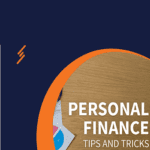Private student loans, while giving access to advanced education, often accompany a large group of challenges that borrowers should navigate. Dissimilar to federal student loans, private loans lack the safety nets of pay-driven repayment plans and absolution choices. Subsequently, many borrowers wind up attempting to manage their private student loan debt. Notwithstanding, help is available for those facing financial hardship or trouble repaying their loans. In this thorough aid, we’ll investigate various avenues and assets that can furnish assistance to borrowers dealing with private student loan debt.
Understanding the Landscape of Private Student Loans
Private student loans are loans given by private financial foundations, like banks or credit associations, to cover educational costs. Dissimilar to federal student loans, which are backed by the public authority and offer borrower assurances and adaptable repayment choices, private student loans are administered exclusively by the terms set by the lender. This often translates into higher loan fees, less adaptable repayment terms, and less choices for financial hardship.
Challenges Faced by Borrowers:
Borrowers with private student loans often experience several challenges that make repayment troublesome. These challenges may incorporate exorbitant financing costs, variable repayment terms, restricted choices for postponement or forbearance, and rigid qualification criteria for refinancing or consolidation. Additionally, private student loans typically lack the absolution choices available for federal student loans, making it harder for borrowers to escape the weight of debt.
Seeking Assistance:
- Loan Modification or Repayment Plans: A few private lenders offer loan modification programs or alternative repayment plans for borrowers encountering financial hardship. These programs may incorporate temporary forbearance, expanded repayment terms, or loan fee decreases. Contact your lender straightforwardly to ask about available choices.
- Refinancing or Consolidation: Refinancing includes taking out another loan with a private lender to pay off existing student loans, potentially getting a lower financing cost or better repayment terms. Consolidation joins various loans into a solitary loan, improving on repayment. Be that as it may, refinancing or consolidating private student loans may not be suitable for everybody and could bring about the deficiency of federal borrower insurances.
- Negotiation with Lenders: It merits reaching out to your lender to examine your situation and investigate potential arrangements. A few lenders may negotiate a changed repayment plan, waive charges, or offer different types of assistance. Be prepared to give documentation of your financial hardship and make a convincing case for why you really want help.
- Financial Guiding Administrations: Nonprofit credit directing agencies and financial aid offices at schools and colleges may offer free or minimal expense directing administrations to help borrowers understand their choices and foster a plan for managing their student loan debt. These administrations can give valuable guidance and backing to borrowers battling with repayment.
- Legal Assistance: In cases of outrageous financial hardship or predatory loaning practices, seeking legal assistance may be necessary. Legal aid organizations or student legal administrations at colleges may have the option to give advice and representation to borrowers facing legal issues related to their private student loans.
- Financial Hardship Programs: A few private lenders offer financial hardship programs for borrowers encountering significant financial troubles. These programs may give temporary help through diminished payments, loan fee decreases, or different types of assistance. Contact your lender straightforwardly to ask about available hardship programs and qualification necessities.
- Debt Settlement or Negotiation: at times, borrowers may have the option to negotiate a settlement with their lender to pay off their private student loans for not exactly everything owed. Debt settlement can be a perplexing and unsafe process, so it’s important to understand the potential outcomes prior to seeking after this choice completely.
Conclusion on Student Private Loan Help
Private student loans can introduce significant challenges for borrowers, however help is available for those battling with repayment. By investigating choices like loan modification, refinancing, negotiation with lenders, financial advising, legal assistance, hardship programs, and debt settlement, borrowers can find the help they need to manage their private student loan debt successfully. Make sure to completely research your choices, gather relevant documentation, and seek guidance from confided in sources to make informed choices about your student loans. With perseverance and the right help, borrowers can conquer the challenges of private student loan debt and work towards financial stability.




